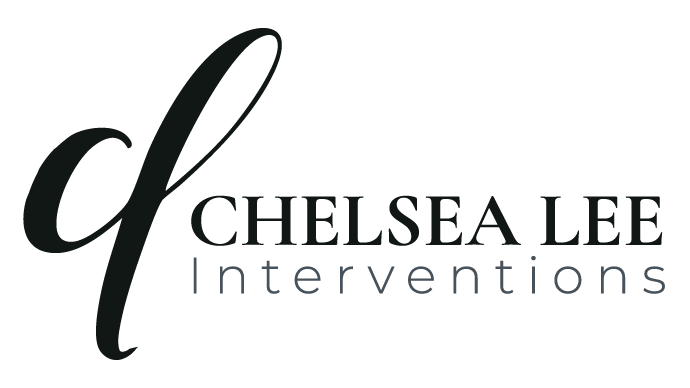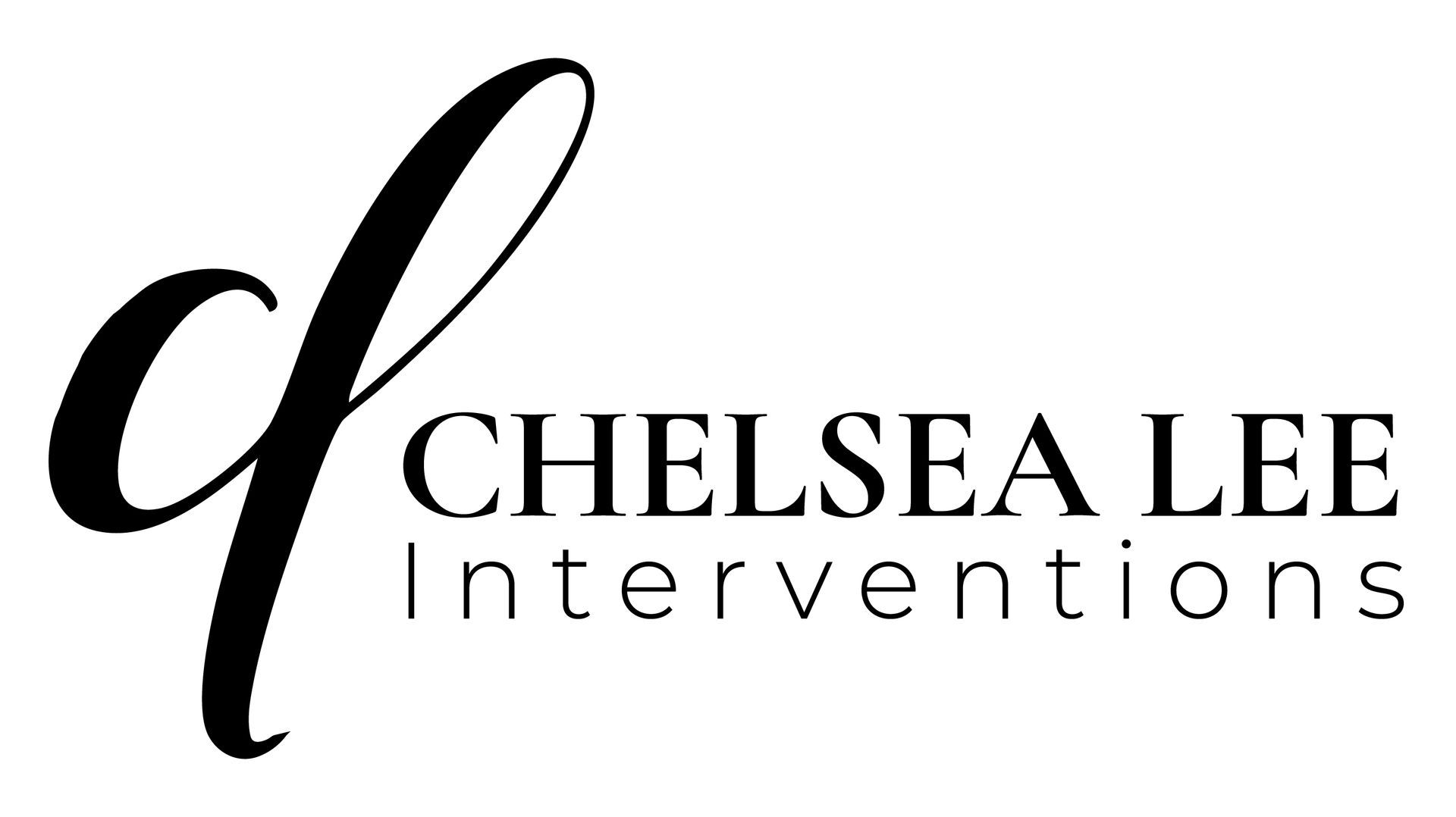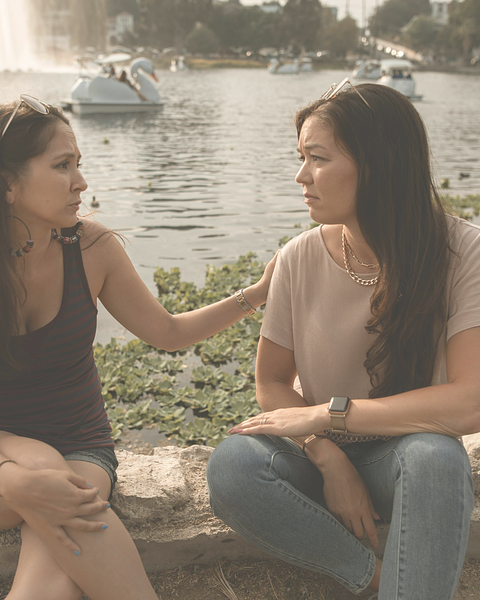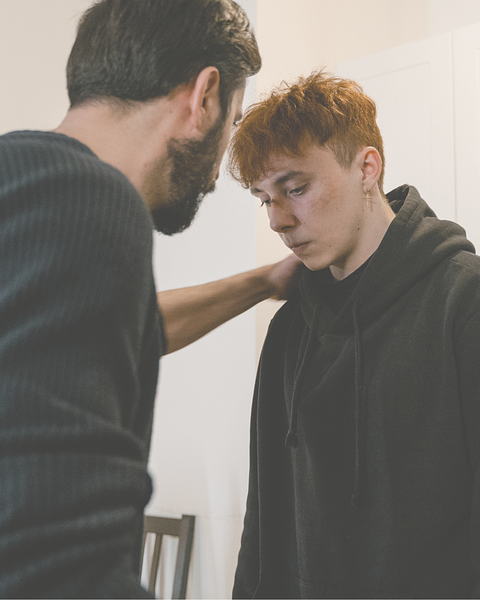Family Trauma Counseling Vancouver: How Addiction Trauma Affects Every Family Member (And Why You Need Healing Too)

Introduction
When addiction enters a family, it doesn't just affect the person using substances, it creates ripple effects of trauma that touch every family member in profound and often invisible ways. As a trauma-informed counsellor and addiction specialist serving Vancouver families, I've witnessed how addiction trauma creates complex wounds that require specialized healing approaches for each family member.
The reality is that addiction is often called a "family disease" because it fundamentally alters family dynamics, communication patterns, and emotional safety for everyone involved. Children develop hypervigilance and anxiety, partners experience betrayal trauma and emotional exhaustion, and family members struggle with feelings of helplessness and grief.
What many families don't realize is that healing from addiction trauma requires more than just getting their loved one into treatment. Each family member needs their own recovery process to address the specific ways addiction has affected their mental health, relationships, and ability to trust and feel safe.
In this comprehensive guide, I'll help you understand how addiction trauma manifests differently in each family member, why traditional family therapy approaches often miss the mark, and how trauma-informed counselling can provide the specialized support your family needs to heal together while honouring each person's individual journey.
Understanding Addiction Trauma in Family Systems
Family trauma from addiction operates differently than single-incident trauma because it involves ongoing, unpredictable stress that fundamentally alters how family members relate to each other and the world around them. This complex trauma affects family systems at multiple levels, creating patterns that often persist long after the addiction itself is addressed.
Unlike other forms of family stress, addiction trauma combines elements of betrayal, unpredictability, financial instability, emotional abuse, and chronic fear that creates what trauma specialists call "complex trauma." Each family member develops their own coping mechanisms and survival strategies that, while protective in the moment, often create additional challenges in relationships and daily functioning.
Trauma counselling for families affected by addiction requires understanding of these complex dynamics while providing a safe space for each person's experience to be acknowledged and validated. Traditional family therapy approaches that focus primarily on communication skills often miss the underlying trauma responses that drive seemingly irrational behaviours and emotional reactions.
In Vancouver, families seeking trauma counselling for addiction-related issues benefit from specialized approaches that integrate trauma-informed care with addiction expertise. This combination ensures that both the addiction dynamics and the trauma responses are addressed comprehensively rather than treating symptoms in isolation.
How Addiction Trauma Affects Children: Developmental and Emotional Impact
Children in families affected by addiction experience trauma that profoundly impacts their developing brains, emotional regulation capabilities, and future relationship patterns. The unpredictable environment created by active addiction disrupts the safety and consistency children need for healthy development.
Young children often develop what trauma specialists call "hypervigilance," constantly scanning their environment for signs of danger or changes in their addicted parent's mood or behaviour. This chronic state of alertness affects their ability to relax, play, learn, and form secure attachments with caregivers.
Children may also take on adult responsibilities far beyond their developmental capacity, becoming "parentified" as they try to maintain family stability or care for younger siblings. This premature responsibility interferes with normal childhood development and creates lasting patterns of over-responsibility in relationships.
Trauma therapy for children affected by family addiction often reveals symptoms that mimic ADHD, anxiety disorders, or behavioural problems, when the underlying issue is actually trauma responses to chronic family stress. Specialized trauma counselling helps children process their experiences while developing age-appropriate coping skills and emotional regulation strategies.
The impact of addiction trauma on children extends into adolescence and adulthood, affecting their ability to trust others, regulate emotions, maintain healthy boundaries, and avoid their own substance use as a coping mechanism. Early intervention through therapy can significantly alter these long-term outcomes.
Partner and Spouse Trauma: Betrayal, Codependency, and Emotional Exhaustion
Partners and spouses of individuals with addiction experience their own distinct form of trauma that combines elements of betrayal, chronic stress, financial instability, and emotional abuse. This trauma often develops gradually over months or years, making it difficult for partners to recognize the severity of their own psychological injuries.
Betrayal trauma occurs when the person you depend on for emotional safety repeatedly violates trust through lying, stealing, manipulative behaviour, or prioritizing substance use over family wellbeing. This creates profound questioning of reality, self-worth, and ability to trust future relationships. Research shows that betrayal trauma is not limited to childhood or sexual abuse. It can also occur in romantic relationships where trust is repeatedly broken.
Partners often develop hypervigilance similar to children, constantly monitoring their addicted partner's behaviour, appearance, or mood for signs of substance use. This chronic state of alertness creates exhaustion, anxiety, and difficulty focusing on other aspects of life including work, parenting, or self-care.
Many partners develop codependent patterns as survival mechanisms, becoming overly focused on controlling or managing their partner's addiction while neglecting their own needs and emotional health. These patterns often persist even after the addiction is addressed, requiring specialized trauma counselling to heal.
Trauma therapy for partners helps distinguish between normal relationship concerns and trauma responses, providing tools for emotional regulation while addressing the complex grief involved in loving someone with active addiction. This process often includes rebuilding a sense of self separate from their partner's addiction and recovery.
Extended Family Trauma: Grandparents, Siblings, and Support Networks
Addiction trauma extends beyond immediate family members to affect grandparents, siblings, close friends, and extended support networks in ways that are often overlooked in traditional treatment approaches. These individuals experience their own forms of secondary trauma while trying to support the family through ongoing crisis.
Grandparents often experience profound grief watching their adult child struggle with addiction while simultaneously worrying about grandchildren's safety and wellbeing. They may take on caregiving responsibilities beyond their capacity while processing their own feelings of failure, guilt, and helplessness.
Siblings of individuals with addiction frequently describe feeling "forgotten" as family attention and resources become focused on addiction-related crises. They may develop resentment, survivor guilt, or their own substance use issues as ways of coping with family stress and seeking attention.
Extended family members and close friends often experience what trauma specialists call "secondary trauma" from repeated exposure to addiction-related crises, emergencies, and grief. They may develop their own symptoms of anxiety, depression, or PTSD symptoms from supporting the family through ongoing trauma.
Trauma counselling that includes extended family helps address these ripple effects while providing tools for healthy boundary setting and self-care. This broader approach to healing acknowledges that addiction can affect anyone.
The Unique Nature of Complex Trauma from Addiction
Addiction creates what trauma experts call "complex trauma" because it involves repeated, interpersonal harm within close relationships over extended periods. This differs from single-incident trauma in its pervasive effects on identity, relationships, emotional regulation, and worldview.
Complex trauma from addiction combines multiple traumatic elements: betrayal of trust, financial insecurity, emotional abuse, neglect of basic needs, exposure to violence or legal consequences, and chronic unpredictability. These overlapping stressors create trauma responses that are more complex and require specialized treatment approaches.
Family members affected by addiction trauma often experience symptoms that don't fit neatly into traditional diagnostic categories. They may have PTSD symptoms without a single identifiable traumatic event, depression that doesn't respond to standard treatments, or anxiety that seems disproportionate to current circumstances.
Trauma-informed counselling for complex trauma focuses on understanding these symptoms within the context of prolonged stress, rather than pathologizing individual responses. This approach helps family members understand their reactions as normal responses to abnormal circumstances.
The developmental nature of complex trauma means that different family members may be affected at different stages of their psychological development, creating varied presentations of trauma symptoms that require individualized treatment approaches within the family healing process.
Why Traditional Family Therapy Often Falls Short
Many families affected by addiction trauma find that traditional family therapy approaches don't adequately address their specific needs or create lasting change in family dynamics. This occurs because standard family therapy typically focuses on communication skills and conflict resolution without addressing underlying trauma responses.
When family members are operating from trauma responses, hypervigilance, emotional dysregulation, triggered memories, or survival mode thinking, traditional therapy techniques often feel ineffective or even overwhelming. Attempts to improve communication can trigger trauma responses that make productive conversation impossible.
Traditional family therapy may also inadvertently reinforce harmful dynamics by asking family members to "understand" or "support" the addicted individual without first ensuring that each person's trauma has been acknowledged and addressed. This can recreate patterns of prioritizing the addiction over other family members' wellbeing.
Effective trauma counselling for addiction-affected families requires specialized training in both addiction dynamics and trauma treatment, ensuring that interventions address both the addiction patterns and the trauma responses they've created in each family member.
Trauma-Informed Counselling: A Different Approach to Family Healing
Trauma-informed counselling provides a specialized framework for addressing addiction's impact on family systems while honouring each member's individual trauma experience. This approach recognizes that healing must address both individual trauma responses and family dynamics simultaneously.
The trauma-informed approach begins with creating safety, both physical and emotional, for each family member before attempting to address relationship dynamics or communication patterns. This means helping individuals develop emotional regulation skills and trauma coping strategies before engaging in family work.
Trauma-informed family counselling acknowledges that each family member may be at different stages of trauma recovery and requires individualized approaches within the family context. Some members may need individual trauma therapy before they can participate effectively in family sessions.
This specialized approach also recognizes that traditional therapy techniques may need modification when working with trauma responses. For example, direct communication exercises might be replaced with somatic approaches, art therapy, or other trauma-specific modalities until nervous systems are regulated enough for verbal processing.
Trauma-informed counselling emphasizes building resilience and post-traumatic growth rather than simply reducing symptoms, helping families develop new strengths and capacities that support long-term healing and prevent re-traumatization during future stressors.
EMDR and Specialized Trauma Therapies for Addiction-Related Trauma
Eye Movement Desensitization and Reprocessing (EMDR) and other specialized trauma therapies offer powerful tools for healing addiction-related trauma in family members. These evidence-based approaches work specifically with how traumatic memories are stored and processed in the brain.
EMDR therapy helps family members process specific traumatic incidents related to their loved one's addiction, discovering drug use, experiencing verbal abuse, witnessing overdoses, or enduring financial betrayal. This processing reduces the emotional charge of these memories and their ongoing impact on daily functioning.
Other specialized trauma therapies include somatic approaches that work with how trauma is held in the body, Internal Family Systems (IFS) that addresses different parts of self-affected by trauma, and trauma-informed Cognitive Behavioural Therapy (CBT) that modifies cognitive approaches to account for trauma responses.
These therapeutic modalities are particularly effective for complex trauma because they work with the nervous system's natural healing capacity rather than relying solely on cognitive processing, which can be limited when trauma affects brain functioning.
Family members often find that specialized trauma therapy helps them understand their own reactions and behaviours in new ways, reducing self-blame and shame while building compassion for their trauma responses as adaptive survival mechanisms.
Building Resilience: Tools for Individual and Family Trauma Recovery
Trauma recovery involves more than processing past experiences, it requires building new capacities for resilience, emotional regulation, and healthy relationships. For families affected by addiction trauma, this means developing both individual and collective resilience skills.
Individual resilience building includes learning nervous system regulation techniques, developing mindfulness and grounding skills, identifying and expressing emotions safely, creating healthy boundaries, and building self-compassion for trauma responses.
Family resilience involves creating new patterns of communication that account for trauma responses, developing family safety plans for managing triggers or crisis situations, building shared understanding of how trauma affects each member, and establishing rituals and traditions that promote connection and healing.
Trauma counselling helps families understand that building resilience is an ongoing process rather than a destination, and that setbacks or triggered responses don't indicate failure but rather opportunities for continued healing and growth.
The goal of trauma recovery is not to "return to normal" but to create new patterns of relating that are healthier and more sustainable than what existed before addiction affected the family system.
The Role of Self-Care and Boundary Setting in Family Trauma Healing
Self-care and boundary setting are essential components of trauma recovery for families affected by addiction, yet these concepts are often misunderstood or feel selfish to family members who have been focused on their loved one's addiction for months or years.
Trauma-informed self-care goes beyond surface-level activities to include nervous system regulation, trauma-informed movement, creative expression, connection with supportive relationships, and engagement in activities that promote post-traumatic growth.
Boundary setting in trauma recovery involves learning to distinguish between your emotional experience and others', saying no to requests that compromise your healing, protecting your energy during early recovery, and communicating needs clearly without guilt or over-explanation.
Many family members need support in recognizing that self-care and boundaries are not selfish but essential for their own healing and their ability to support others in healthy ways. Trauma counselling helps distinguish between healthy support and codependent caretaking.
The process of establishing self-care and boundaries often triggers guilt, anxiety, or fear in family members who have been in survival mode. Working with a trauma-informed counsellor provides support during this challenging but necessary transition.
Finding Trauma Counselling Services in Vancouver
Vancouver offers numerous trauma counselling services, but finding providers with specific expertise in addiction-related family trauma requires careful consideration of training, approach, and specialization areas.
Trauma counsellors in Vancouver may work in private practice, community mental health centers, or specialized addiction and mental health facilities. Look for providers with specific training in trauma-informed care, EMDR, somatic approaches, or family systems work.
Many trauma therapists in Vancouver offer both individual and family counselling options.
Vancouver trauma counselling services include low-cost options through community organizations, sliding-scale private practice options, and specialized programs through organizations like Family Services of Greater Vancouver that specifically address trauma in family systems.
When seeking trauma counselling for addiction-related issues, it's important to find providers who understand both addiction dynamics and trauma treatment, ensuring that your family's complex needs are addressed comprehensively.
When to Seek Professional Trauma Counselling for Your Family
Many families wonder whether their experiences constitute "real trauma" or if they need professional support for their addiction-related stress. Understanding when to seek trauma counselling can prevent symptoms from worsening and promote earlier healing.
Signs that family members may benefit from trauma counselling include persistent anxiety or depression, sleep disturbances or nightmares, difficulty trusting others or forming relationships, emotional numbing or overwhelming emotions, intrusive thoughts about addiction-related incidents, or physical symptoms without medical cause.
Children may show signs through behavioural changes, regression in developmental milestones, difficulty in school, aggressive or withdrawn behaviour, or age-inappropriate fear and worry about family safety.
Professional trauma counselling becomes essential when family members are unable to function normally in work, school, or relationships, when symptoms are worsening over time, or when family dynamics remain chaotic even when addiction is being addressed.
Early intervention through trauma counselling can prevent long-term complications and help family members develop healthy coping strategies before patterns become deeply entrenched.
Frequently Asked Questions About Family Trauma Counselling
How do I know if my family needs trauma counselling or just regular family therapy?
If addiction has been present in your family, trauma counselling is likely needed because addiction creates complex trauma that requires specialized treatment approaches beyond traditional family therapy techniques.
Can children participate in family trauma counselling, and at what age?
Yes, children can participate in age-appropriate trauma counselling. Very young children may engage through play therapy, while older children and teens can participate more directly in family sessions with proper support.
How long does trauma recovery take for families affected by addiction?
Trauma recovery is an individual process that varies greatly depending on the severity and duration of trauma, individual resilience factors, and quality of support systems. Families can potentially see initial improvements within months, with continued growth over years.
What if the person with addiction is still using substances? Can we still do family trauma work?
Yes, family members are greatly encouraged to address their own trauma regardless of their loved one's current substance use. In fact, healing your own trauma often provides better tools for supporting someone in active addiction.
How do I find a trauma counsellor who understands addiction issues?
Look for providers with dual specialization in addiction and trauma, or those who work specifically with families affected by substance use disorders (SUD). Ask about their training in trauma-informed care and addiction family dynamics.
Will insurance cover trauma counselling for family members?
Many insurance plans cover trauma counselling, when provided by licensed mental health professionals. Check with your provider about coverage for individual and family therapy related to trauma treatment.
What's the difference between individual trauma therapy and family trauma counselling?
Individual trauma therapy focuses on one person's healing, while family trauma counselling addresses how trauma affects family relationships and dynamics. Many families benefit from both approaches simultaneously.
How do I talk to my family about seeking trauma counselling?
Focus on the benefits of healing and support rather than pathology. Emphasize that trauma counselling helps build resilience and improve relationships, not that family members are "broken" or "sick."
Summary: Taking the First Step Toward Family Trauma Healing
Understanding that addiction creates trauma for every family member is the first step toward comprehensive healing that addresses each person's needs while strengthening family relationships. Trauma-informed counselling provides specialized tools and approaches that recognize the complex nature of addiction-related trauma.
Healing from addiction trauma is not about returning to how things were before addiction affected your family, it's about creating healthier patterns of relating, communicating, and supporting each other through life's challenges. This process requires professional support because trauma affects brain functioning in ways that make traditional self-help approaches insufficient.
The most important message I want to convey is that your trauma responses are normal reactions to abnormal circumstances. Seeking trauma counselling is not a sign of weakness, but a courageous step toward reclaiming your life and relationships from the impact of addiction.
Every family member deserves the opportunity to heal from addiction trauma, develop resilience, and build the healthy relationships they deserve. Professional trauma counselling provides the specialized support needed to make this healing possible.
If you recognize your family's experience in this description, I encourage you to reach out for a consultation. You don’t have to carry the weight of addiction trauma alone, healing is possible for every member of your family. During the consultation, if it turns out I’m not the right fit, I’ll gladly share referrals to trusted professionals who may be better suited to support you. What matters most is that you and your family get the help you deserve.
Contact Chelsea Lee - Addiction and Behavioural Interventions
📞 Phone: +1 (778) 858-0042
📧 Email: info@chelsealee.ca
🌐 Website: www.chelsealee.ca
📍 Serving Vancouver, BC and surrounding areas
Specializing in trauma-informed counselling. Free 30-minute consultation available to discuss your needs and trauma recovery options.

Chelsea Lee, MPCC
Licensed Master Practitioner in Clinical Counselling & Certified Interventionist
I am a Licensed Master Practitioner in Clinical Counselling and Certified Interventionist with over 20 years of experience helping families navigate the challenges of addiction and mental health. My approach combines professional training with my own lived experience, allowing me to provide not just expertise, but also genuine understanding and compassion. My goal is to walk alongside families, offering hope, healing, and practical support as they work toward recovery and lasting change.
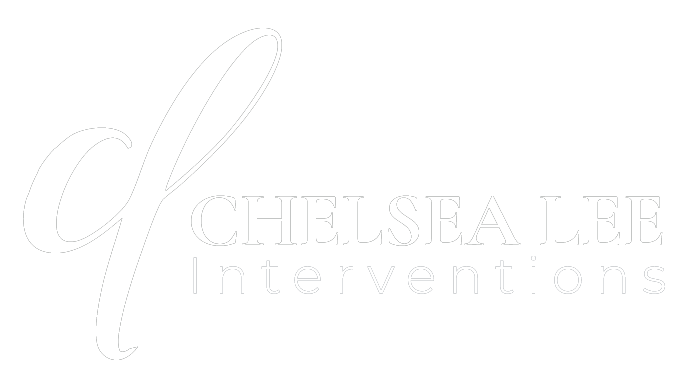
Reclaim Your Peace of Mind
Book your free consultation now and discover the support you deserve.
